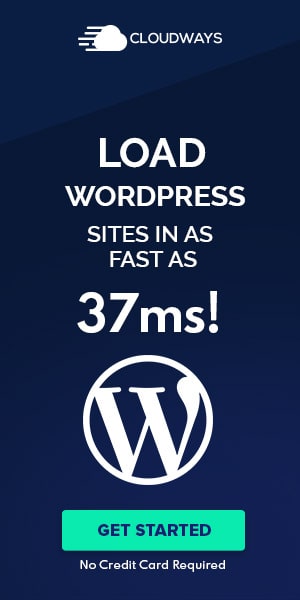I was on Facebook the other day in a WordPress development group I’m in, and a new developer asked me a question. “What is the number one thing I should be learning?”. My answer was – “Learn how you can offer more value to clients and don’t stop learning that.”
Have you got to a point where you were wondering, “How can I start to charge more my web development services?”. Maybe you have been learning code and building websites for 1 or 2 years, and you feel you want to move up and make more. But there’s that hump that it is hard to get over.
I’ve been there. And that took me on a quest to learn how to make more for what I do. And what I found, I was asking the wrong question. It wasn’t, “how can I charge higher rates?”. The right question was – “How can I give more value to my clients?”
Once I shifted my mindset and started looking from a different perspective, I became more focused on how I can add more value. This put me in a position where I could genuinely make an impact on my client’s businesses and, therefore, offered more value, which a higher rate followed.
What Does Adding Value Mean?
Value can be used in many scenarios. For this article’s context, we will look at ‘value’ as what you can offer or give to your clients. And we will be looking at more than just proper coding and website building. Of course, excellent coding skills is a value on its own. But what will make you stand out? And what more can you give to your clients?
Sometimes it is more than just making a good website or completing tasks. There is a big difference between an order taker and a solution provider. If you are merely happy having someone tell you precisely what to do and then completing those tasks, perhaps working full time for an agency would be an excellent place to be.
But if you want to freelance, start your own business, and pave your own way, then the first step is breaking out of the order-taking mindset and adding more value to what you can give. Below are ten areas to help highlight where you can put your focus into and start with the value building. And ultimately, increase your rates and earnings.
1. Client Care
Client care always goes to the top of the list. It goes beyond just taking care of clients and making sure they are happy with your services. It is a genuine caring for them and their businesses.
Before I was a web developer and designer, and before I had my own agency, I was a manager at The Home Depot. If you have visited a Home Depot before, you know that HD employees are there to help you. That is because Frank Blake and Marvin Ellison transformed The Home Depot by creating a customer-first culture. Taking care of customers is drilled down into the core of The Home Depot in a way no other retailer can come close to, and as a result, The Home Deport became the number one retailer in the US.
I believe I was a successful freelancer because I took those core values and implemented them in my business. By absolutely caring for your clients and their business, you will build a deeper relationship with your clients, and you will push yourself harder to get better at producing results.
2. Using Empathy
This follows up with client care. By having empathy and being able to put yourself in your client’s shoes, you will be able to take client care to the next level.
One thing we have to understand, when we take on a client, someone is trusting us with their business. That is a significant trust. Especially when you see it from the client’s viewpoint. Most likely, the client has worked hard. And I mean the 7 days a week, 16 hours a day type of working hard. They most likely made lots of sacrifices and invested what they have. So looking from that angle, you can see how big that trust is.
One thing I like to do is ask clients what a successful project will look like. It could be more than just building what was asked for. It helps to find out what their expectations are and what will help them best by taking on their project.
3. Communication Skills
This may sound obvious, but actually, there’s much more to learning how to communicate with a client. First, you must be able to speak openly and respectfully with a client. As an agency owner that hires and works with developers, I am always surprised when I talk to developers that don’t communicate or are rude. If you plan on freelancing, you got to start learning to develop customer care and sales skills.
I understand many developers are in different countries that have language barriers and worry about their accents. I want you to know, it doesn’t matter where you are from. You can be just as valuable as any developer in any country. I have worked with amazing developers who have super thick accents but also have great attitudes, listening skills, and are a pleasure to work with. And you know what? They aren’t cheap! Because they know their value an offer a lot of it.
And here is the big part of communication. Learning how to ask the right questions and learning how to listen. This comes with experience and practice. When you start to look at your projects in a way where you are most concerned about your client’s goals and solving their problems, you will begin to learn how to ask different questions.
A good starting point is to ask your clients about what their goals are, what they are hoping to achieve, and how the project will help them and their business. Also, ask about their challenges. What is getting in the way, and what their biggest pain point? As you keep asking these types of questions with your clients, you will learn which ones to ask that get you the information needed to find the right solution.
Think of it like a doctor’s visit. You may go thinking you have a problem. But the doctor asks you a few questions, and he knows what it is, which is something different from what you thought. And only then will he prescribe medicine. We should do the same. Learn to ask the right questions to find out the real problem. And then prescribe a solution.
To help you listen, take notes constantly! When in a meeting with a client, try writing notes the entire session. This will force you to listen.
4. Master a Skill
One of the best advice I got when I was brand new was to choose one language and master it. At the time, I was trying to learn everything! Frontend, backend, javascript, python, node, CSS, MySQL…It was a new world, and I wanted to consume all of the information I was learning. Then I met a successful developer who told me to stop and just choose one, master it, and then move on. The best advice I ever got!
Now I know being a full stack developer is a big thing at this time. It sounds good to have that title. But it doesn’t tell potential clients what your strengths are and if you are right for a specific project. For example, if we are going to build a custom website with PHP, it would be less of a risk for me to hire a developer that specializes explicitly in PHP. I would even be willing to pay more for that because I know the job will get done correctly.
Now don’t get me wrong. As a developer, you should learn more than one skill, just master at least 1-3 that you can claim. You can still be a full stack developer, but you can be more! You can be a ‘Full Stack Developer that Specializes in _______”. This will make you more hirable and positioned better as a specialist, in which you can sell your services at a higher rate.
5. Niche Down
This follows the ‘Mastering A Skill’ tip. Choosing a specific skill to specialize in is part of niching down. Be you can niche down even further. Even until it hurts.
By niching down, you become more of a specialist and will be sought after by more prominent and higher-paying clients. You become a go-to developer for that specific niche. You can choose an industry, market, and platform to niche down in. I have a friend that charges a crazy high rate. He only works with banks using Ruby as a contractor. He is an excellent example of how to niche down and how it can benefit.
6. Project Management Skills
Many projects will have a project manager, and they will assign specific tasks. And that is all good for the order takers. But what about if you want to be more than an order taker?
Project management is a skill on its own. Without it, chaos occurs. Have you ever been in a project with scope creep from hell? It was supposed to take two weeks, but you are now in month four, and the project still isn’t coming out correctly?
Project management is the solution to making sure your projects stay on course and is a better experience for the client. There are tools like Trello and Asana to help with this. Start to look at building your own systems and processes and keep refining them. In time, you will have a process in place that works smoothly, saves you valuable time, and delivers results for your clients.
7. Keeping Your Portfolio as a Top Priority
I and most others hiring developers and designers usually look at the top portfolio piece and, in a few seconds, will decide if we will look further or pass. This is why it is so important to put your best work up front.
A common mistake I see in many portfolios are developers listing every website they built. And usually, just send a long list of links. You don’t need many sites to show in your portfolio. In fact, it would be far better to show just 3-4 of your best current projects. I say current because chances are, a year from now, your work will be much better than what you are doing now. So your portfolio should be updated at least a couple times a year.
Sending website links as part of your profile does not show what you actually did. A good portfolio will tell the story of the project. What did you do? What were the goals of the project? What problems need to be solved, and how did you solve them? Take time here, research other portfolios that are well built, and put together three to four of your top projects and send that to your potential clients. You will instantly stand out from all other developers that just shared links.
8. Creating Content & Social Media
This one is often overlooked. If you want to position yourself as a high-end developer, writing content with defiantly starting to place you in that category. You can do this by writing blog posts, posting regularly on a few social media platforms like Facebook and LinkedIn, creating carousels on Instagram, contributing to Github.
This will help you to be more discoverable and will show your thinking process. If I were to visit your Facebook page and see you create a post every week, I would know you are more than just a random developer. And remember, we are trying to see how to be more than an average developer to make that above-average rate. Writing content is a powerfully effective way to do this.
9. Learn Design Principles
A good web/UI/UX designer will know a bit of frontend development and understand how programming works. The same should go for a developer. Especially if you are freelancing.
I have seen talented developers make the most awful looking websites that had no structure, and their client’s sites were doomed to fail. Many times, a client will hire a developer but not have the budget for a designer too. And as a result, they have a well-coded website, but will not convert and reflects poorly on the brand. The back end can look beautiful, but from the user’s perspective, it can appear like an awful website.
You always want to make sure your clients are getting a website that will help their business, and that is why a valuable developer will have an understanding of web design and design principles. Things like typography, spacing, funnels. You don’t have to be a designer but invest in learning.
10. Give Back By Teaching & Mentoring
The last on the list but one of the most important things you can do – giving back. By taking time to teach newbie devs and even mentoring a couple, this will actually help develop your skills. What I found from teaching others is that it keeps me in the process of learning. By stepping out of the daily grind of the client’s work and helping others, I get a bigger picture of what I am doing and what is possible.
It also comes back around. And that is in life generally. Helping others takes us outside of ourselves and allows us to focus on positive energy and actions, which is just healthy.
Conclusion
If you were wondering how some developers can build a five-page website for $10k, this is how. They offer much more than just the site. I hope this helps with your career journey and puts you on a path to adding more value to your web development services, making you a valuable web developer.



